Islamic Rule and the Role of Saints
This blog talks about history of Islamic rule and the role of Saints in it. It is Allah’s generosity that He sent Prophets for humanity’s welfare, worldly and hereafter success, promotion of civilization and propagation of religion especially the Holy Prophet as source of
guidance and mercy for all. Before him, most of the world was in misguidance and darkness. It was like a barbaric society. All kinds of
evils, sins and ugliness covered Arab. Alcoholism, adultery, gambling, usury and peddling were rampant. But the Holy Prophet swept away the clouds of misguidance and darkness.The Holy Prophet preached the truth, taught wisdom, Quran and recited its verses and enlightened people’s hearts with faith. History is witness that the Holy Prophet trained uncivilized and uncultured people of a corrupted society and spread the laws of Islam. So much so that he astonished the whole world. A barbaric nation learned the golden principles of education, civilization and religion and reached the height of humanity and demonstrated skills throughout the world.
After the Holy Prophet, his Companions, Tābi‘ūn and Tābiʿū al-Tābʿīn the Saints and Sufis performed the duty of guiding people. On one hand, Muslim rulers raised the flag of Islam in the world and established kingdoms. On the other hand, the Saints continued enlightening people by becoming a beacon of light and reformed and educated them. Muslim rule progressed when Muslims remained attached to Saints, focused on inward reformation, truly loved and devoted to them.

Sultan Bahoo says:
The king is subject to the Saint. Whosoever gained victory and dominion gained it under the blessing of a dervish. (Mehak-ul-Faqr Kalan)
History of Islamic Rule
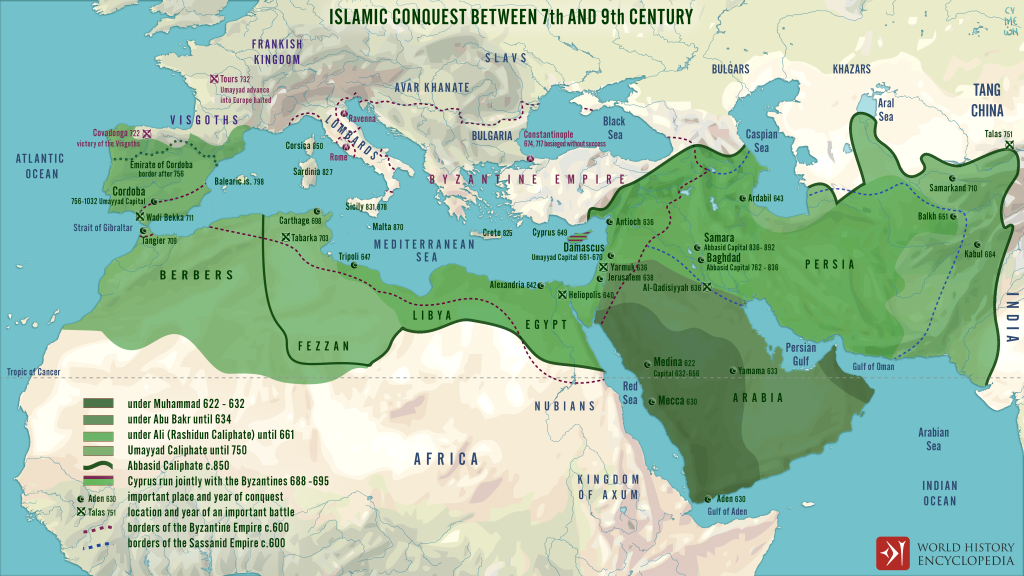
The Rashidun Caliphate:
At the time of the Holy Prophet’s passing (635 AD), Islamic rule had spread in the entire Arabian Peninsula. Then Abu Bakr became Caliph and ruled for two years. Several treasons happened during his rule. He controlled temptations, apostasy and treason and also sent troops beyond Arabia. After Abu Bakr, Umar became Caliph. Muslims won amazing victories under his leadership.
During Umar’s rule, Iraq, Algeria, Armenia, Azerbaijan, Kerman, Khorasan, Herat, Hamedan, Daylam, Rey, Tabaristan, Sistan, Persia and Makran became part of the Islamic rule. Thus, only 20 years after the Battle of Badr, Muslims ruled a vast empire that covered 2.2 million square miles. During this period Iran and Rome were two superpowers, Muslims defeated both Caesar of Rome and Khosrow II of Iran. (Musalmano ka hazaar sala urooj)
Umayyad and Abbasid Dynasty:
During the Umayyad Dynasty, the great series of Muslim conquests continued. Uqba ibn Nafi conquered Algeria and
Marrakesh in 683 AD. In Al-Walid I’s rule (705-15 AD), Qutayba ibn Muslim subjugated all of Central Asia up to Kashgar (China). In the same Islamic era, Mohammad Bin Qasim added Balochistan, Sindh and Multan to the Islamic rule. A large part of Anatolia (Asia Minor) remained under Muslim rule during the Umayyad and Abbasid Dynasty.The conquest of Spain by the famous general Tariq bin Ziyad is one of the greatest Muslim feats. Establishment of Islamic rule and the conquest of Spain is a historical event. Evidently, these brought Europe out of political, economic and cultural backwardness and gave it new vision and thought. Muslims ruled Spain for almost eight hundred years. It was in this era that Muslims conquered Portugal. Muslims ruled Sicily for two hundred and sixty-four years, Crete for four hundred and eighty-five years and southern France for two hundred. (Musalmano ka hazaar sala urooj)
Ottoman Empire:
The empire was founded at the end of the 13th century in Anatolia. Then within a century, Ottoman armies overran Christian lands as far away as Asia and Africa, in Southeast and Central Europe. Murad I conquered a big part of Europe in 1360 AD. In 1402 AD, Greece joined the Ottoman Empire. During the reign of Mehmed II, Muslims were ruling over 1.7 million 3 thousand square kilometers of Europe. During the last period of the Ottomans, 3,543,662 square kilometers of Europe were under the Ottoman Empire. (Musalmano ka hazaar sala urooj)
Rule over the Subcontinent:
Mohammad Bin Qasim was recognized as governor of Makran in Al- Walid I’s rule (705-15 AD). After consolidating Makran’s government, he advanced and conquered first Arman Belah (Lasbela)and then Debal. In 712 AD, he defeated Raja Dahir and continued to advance and conquer city after city. Thus, this entire area became part of the Muslim empire and the first Muslim region in Hindustan came into being. Sultan Mahmud of Ghazni (971-1030 AD) was the ruler of Afghanistan and Khorasan. He made seventeen attacks on Hindustan. As a result, Hindus faced crushing defeat in each attack. Mahmud of Ghazni added Punjab to his empire in 1021 AD. Mohammad of Ghor conquered Dehli in 1192 AD and laid the foundation of a permanent government in India.
The Ghori Empire included present-day Pakistan, North India, Bihar and Bengal. Following Ghori, the important rulers of India include Qutb ud-Din Aibak, Shams ud-Din Iltutmish, Ghiyas ud din Balban, Alaud-Dīn Khaljī, Muhammad bin Tughluq, Ibrahim Khan Lodi and Sher Shah Suri. (Musalmano ka hazaar sala urooj)
Babar founded the Mughal Empire in 1526 AD. It was the greatest of its time. Following Babar, Humayun, Akbar, Jahangir, Shah Jahan and Aurangzeb were the great rulers of the Mughal Empire. After Aurangzeb, the Mughal Empire declined. The last ruler was Bahadur Shah Zafar. In 1857 AD, the British captured Delhi and Muslim rule over India ended. Muslims ruled over India for a thousand years.
Role of Saints
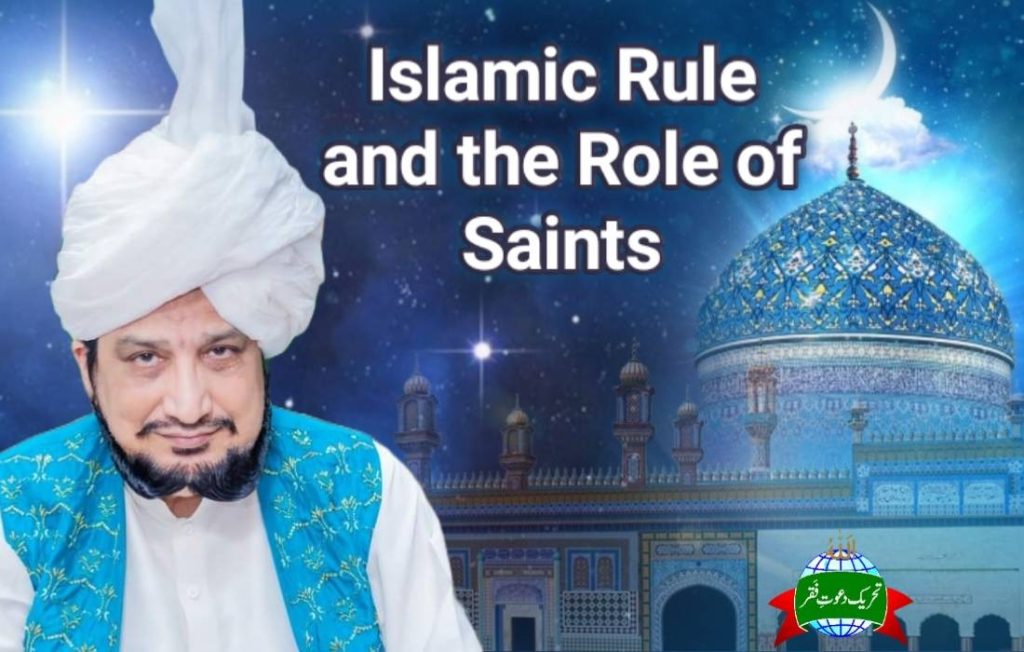
During the early period of Muslim rule in India, there were great Sufi Saints who made a difference in religious, spiritual and social life. Usually, people think that Islam spread because of the swords of conquerors and kings. It is evident from the lives of contemporary Sufi Saints of these conquerors and kings that the Sufi Saints first made their own hearts a palace of Divine light and then purified people’s lives from material impurities and comforts. They trained people outwardly and inwardly, saved broken hearts by restoring them, set them on the path of goodness, taught them sincerity and love and dedicated them to the service of creation. As a result, everyone including Royal and common, nobles and elders, Muslims and non-Muslims all respected them and the true spirit of Islam reached everyone.
The services rendered by a few Saints of Allah regarding the publication of religion are being presented for the readers.
Shaikh Abdul Qadir Jilani:
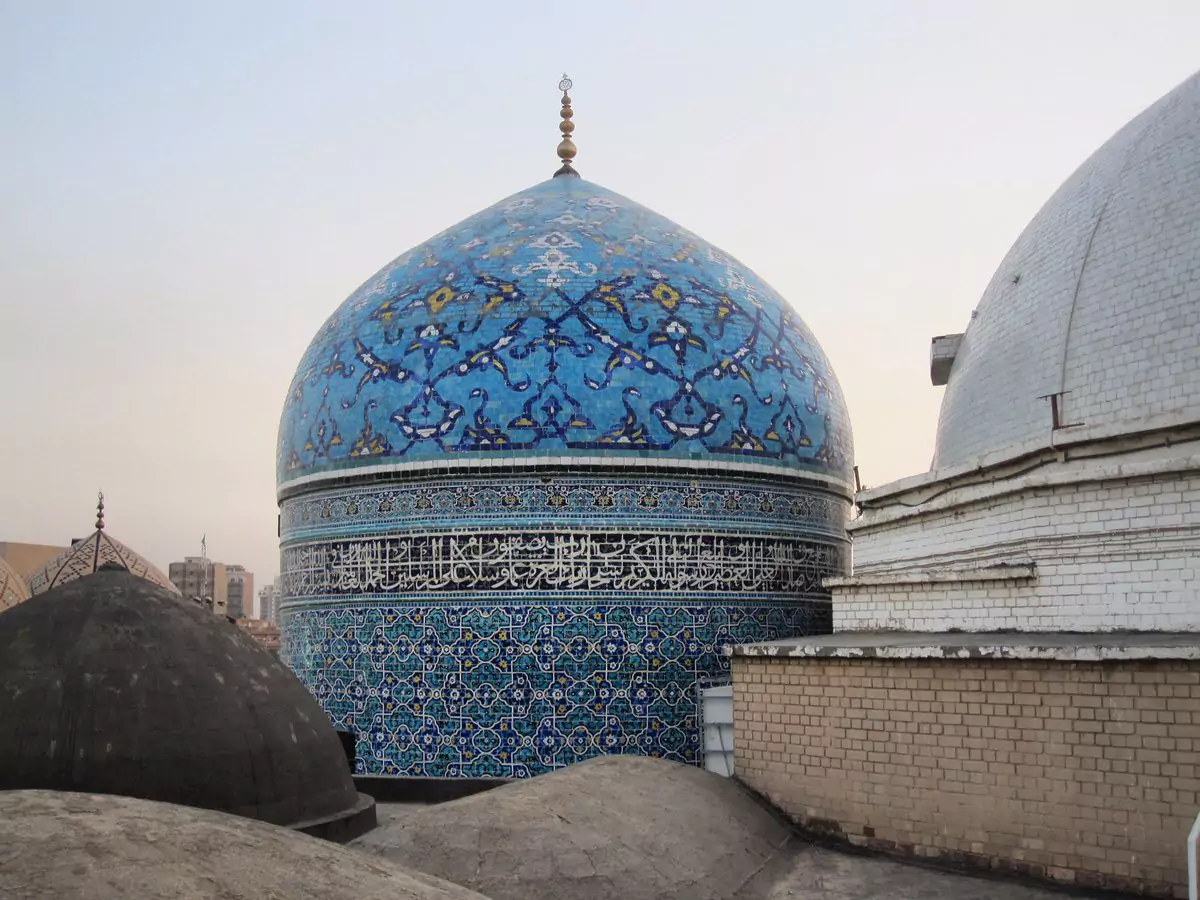
Christian governments of Europe were trying to end the power of the Muslims when Shaikh Abdul Qadir Jilani was born. The world of Islam was in chaos and confusion. Many Muslim governments had ended. And those that remained were subjected to internal disturbances and changes. Muslims were losing their power and dignity. Constant efforts were being made to undermine their faith.
When Shaikh Abdul Qadir Jilani came to Baghdad in 488 AH, the world of Islam had become home to many temptations. A false belief was initiated claiming that the Quran was created. Undoubtedly the Quran is Divine. At the other end there was an abundance of fake scholars who were polluting Muslims. Baghdad which was the centre of Islam had become infected with immoralities, transgression, pretence and hypocrisy. The Caliphate of Baghdad was declining day by day. The Seljuks were fighting amongst themselves.
The ruler who had the most power in Baghdad would turn the religious sermons in his favour. The Abbasid Caliphate was subdued. This was al-Mustansir Billah’s reign which lasted from 487 AH to 512 AH. To save the sunken ship of the Muslims and revive Islam, Allah gave a great reformer to the Muslim umma in the form of Sheikh Abdul Qadir Jilani. He understood Faqr and Sufism. That was the time when Shaikh Abdul Qadir Jilani stepped into the arena of jihad armoured with virtue and piety, well acquainted with sharia and armed with the knowledge of Quran and Sunna. He started war against satanic, false and spurious beliefs through assemblages during which he guided and persuaded towards piety, virtue and righteousness. His greatest miracle is the revival of Islam, that's why he has been awarded the title of Mohiyuddin. (Hayat-o-Taleemat Syedna Ghaus-ul-Azam)
Data Ganj Bakhsh:
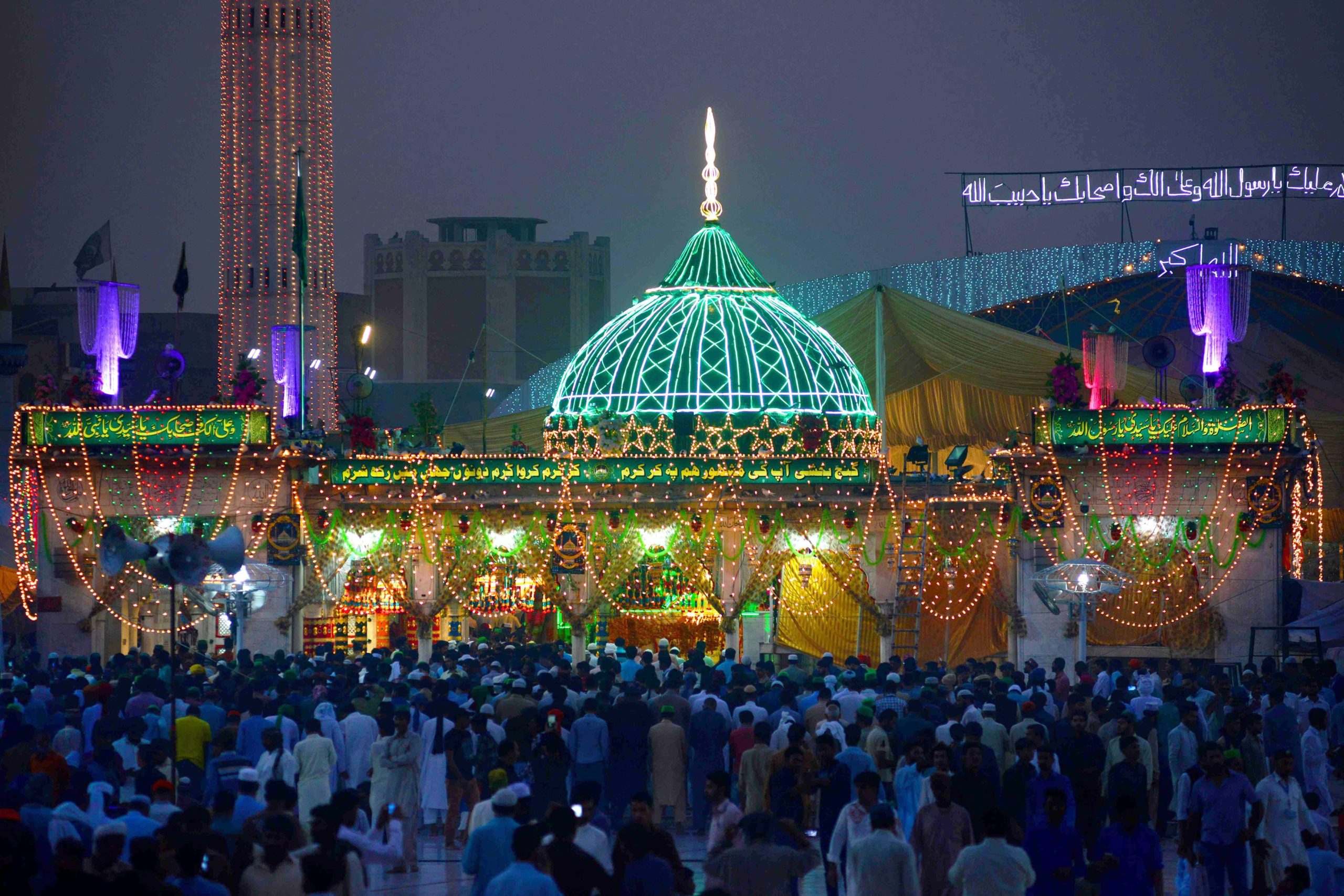
Ali Hajveri spread the light of Islam in the subcontinent and guiding the misguided to the right path. He came to Lahore during the reign of Ibrahim of Ghazna’s father Mas’ud I of Ghazni and spent the rest of his life here. The message of Islam spread in Lahore and its surroundings through his efforts. When he came to Lahore, the vice-governor of Punjab, Rey Raju also became a Muslim inspired by his heart-felt advice and he was named Shaikh Hindi. He was a very devout Muslim. Ali Hajveri gave great importance to purity of heart and inward cleanliness.
“Kashf-ul-Mahjub” is his masterpiece. This is a unique book on Sufism in Persian which has been scattering pearls of gnosis and wisdom for centuries and quenching the thirst for the right path.
Khawaja Moinuddin Chishti:

It is his great favor to the Muslim umma that he came to the subcontinent and lit the candle of Islam in the darkness of infidelity. He
accomplished the great feat of propagating Islam and entrusted his successors the responsibility of propagating it in different parts of India.His successors included glorious Saints like Qutbuddin Bakhtiar Kaki and Hamiduddin Nagauri. Khawaja Moinuddin Chishti propagated Islam not only among men but also among women. For this he trained his daughter Hafiza Jamal.
The city he chose to propagate Islam was Ajmer. Ajmer was politically very important. The famous and powerful Hindu king Prithviraj Chauhan ruled here. Under these conditions, Making Ajmer the centre of his preaching was a manifestation of Khawaja Moinuddin Chishti’s extraordinary courage. He knew that people in this city needed Islam’s light of guidance. People came to him from far and accepted Islam due to his attractive personality, charming style of conversation and unique way of preaching. The king disliked his movement and growing popularity. He started disturbing Khawaja Moinuddin Chishti’s disciples.
The king threatened him that he would throw him out of Ajmer. To this he said, “We captured Prithviraj alive and handed him over to
Muslims”. His prediction proved correct. In 588 AH, Mohammad of Ghor attacked Prithviraj’s army at Tarain, in which the Muslims won. Prithviraj was arrested and executed. (Azeem Musalman Shakhsiyat)
Bahauddin Zakariya Multani:

Bahauddin Zakariya Multani saw eras of many rulers in his long life. These include Muhammad of Ghor, Qutb ud-Din Aibak, Aram Shah, Shams ud-Din Iltutmish, Nasir ad-Din Qabacha, Rukn al-Din, Razia Sultana, Muiz ud-Din, Bahram-Shah, Malik izz ud-din, Ala ud-Din Masud and Nasir ud din Mahmud. Shams ud-Din Iltutmish even appointed him the Shaikh-ul-Islam of the kingdom. This was a very important post which meant to appoint judges and enforce Sharia law.
Bahauddin Zakariya Multani is the founder of the organized movement of preaching and reform in South Asia. Thousands of people in Sindh, Multan and Balochistan became Muslim because of his movement. He prepared a comprehensive plan for Jihad against atheists, to spread teachings of Islam and bring about a pure society. His movement was universal. Many areas of Sindh and India were blessed with Islam thanks to his and his successors’ tireless struggle. (Azeem Musalman Shakhsiyat)
Fariduddin Ganjshakar:

His greatest feat was publication of Islam. As a result of which many non-Muslim tribes and families of West Punjab were blessed with Islam. The tribes living in these areas, Rajput, Sial, Wattoo, Khokhar, Marhango Valian, Bahlian Jakar Valian, Bukan, Siyyan etc. became Muslims due to his efforts. (Azeem Musalman Shakhsiyat)
Another feat of his is organizing the movement of preaching. His method was that he would take allegiance from anyone who wanted to join his circle.
Nizamuddin Auliya says:
Whenever someone came to Fariduddin Ganjshakar to become his disciple, he would instruct him to recite Sura Fatihah and Sura Ikhlas once. Then he would recite the last rukuh of surah al-Baqarah, after which he would recite a few other verses. He would take a promise from the disciple that he would protect his hands, feet and eyes and stay on the path of Sharia. (Sir-al-Auliya)
The result of his continuous hard work was that he prepared a large group of Saints. He entrusted many of his successors with the responsibility of preaching and sent them to various areas in the Sub-continent. Nizamuddin Auliya, Jamal-ud-Din Hansvi and Makhdoom Alauddin Sabir are among his successors. Fariduddin Ganjshakar did not have much interaction with the government officials, but wherever necessary, he would communicate with them and even rebuke them for mistakes. Once someone requested him to advise the ruler of the subcontinent, Ghiyas ud din Balban. He sent the following letter to Ghiyas ud din Balban:
I submit this person's case to Allah Almighty and then to you. If you give something to him, the real giver will be Allah and you will be grateful. And if you do not, Allah will be the one who prevented it and you will be helpless. (Azeem Muslim Shakhsiyat)
Nizamuddin Auliya:
Fariduddin Ganjshakar organized the movement of Chishtia Order whose seed Khawaja Moinuddin Chishti sowed in the Sub-Continent. Nizamuddin Auliya performed the duty of further spreading and strengthening it. He corrected the prevalent ideas about Sufism and clarified the correct and true Islamic perspective to his disciples through periodic warnings.

Nizamuddin Auliya said while granting spiritual succession to his disciples:
“Renounce the world and do not turn towards the people of the world. Leave your village and property and do not accept rewards from kings.”
He explained “renounce the world” as “renunciation of the world does not mean to make oneself naked and sit with a loincloth. It means in the true sense to wear clothes, eat food and use whatever is available but not be attracted to hoarding it and not to entangle heart one’s in any worldly thing.” (Azeem Muslim Shakhsiyat)
Nizamuddin Auliya’s reformation movement proved very fruitful. Its effects reached every sphere of life. Famous historian Ziauddin Barani, who was also his disciple, writes in his book “Tarikh-i-Firuz Shahi”:
In Alaud-Dīn Khaljī’s era, thousands of people repented and started regular prayer because of Nizamuddin Auliya. NizamuddinAuliya had opened the doors of allegiance for everyone. As a result, many officers and servants in Alaud-Dīn Khaljī’s court werehis disciples. Students wanted to study Sufism and religious books. Production and sale of copies of religious books increased (Azeem Muslim Shakhsiyat)
Sultan Bahoo:

Sultan Bahoo was born on Thursday, 1st Jumada ath-thani 1039 AH (17th January 1630 AD) in Shorkot, Jhang Pakistan during the rule of Shah Jahan. He was born a Saint. Eternal light shone in his eyes and Divine light illuminated his forehead. Even in his childhood, the Divine light was so bright in him that whoever he looked at, he would bless them with Divine union. If he looked at a non-Muslim, he would recite Shahadah and become a Muslim.
He compiled 140 books to illuminate the hearts of seekers of Allah with the light of faith and to make people aware of the true spirit of the Mohammadan religion. One of which is in Punjabi and all others in Persian. His books are the masterpieces of Divine knowledge. Even after his physical departure, his books are providing inward guidance for seekers of Allah. He mentioned Aurangzeb in his works.

He says in his work “Qurb-e-Deedar”:
کہ اورنگزیب غازی بادشاہ است
عمل شاہی عبیداللہ الٰہ است
Amal Shahi Ubaidullah Illah ast
Keh Aurangzeb Ghazi badshah ast
Explanation:
It is the era of Aurangzeb who is a living soldier and an obedient slave of Allah.
Shah Waliullah:
After Aurangzeb, the Mughal Empire declined. We find by studying Islamic history that the role of Saints for teaching of mankind and
inward reformation has been very important in every era. In every era, the Saints continued to fulfill their duty to propagate the Mohammadan religion and make the Muslims aware of its true purpose. Shah Waliullah translated the Quran into Persian and brought the minds of common Muslims closer to its teachings by writing its interpretive benefits during a period of decline when the Islamic government fell in the subcontinent.Similarly, he wrote expert description of the most important book of hadith, Muwaṭṭaʾ, in Persian and Arabic. He evaluated the translations of Sahih Bukhari and emphasized on the teaching of hadith instead of jurisprudence and logic in Madrasas. Shah Waliullah broke the Fiqh status quo by explaining the importance of research Fiqh and tried to bring Hanafi, Shafii, Hanbali and Maliki closer to each other. (Hindustan ke salateen, ulama aur mashaikh ke talluqat par ek nazar)
How can Muslims regain their lost dignity?
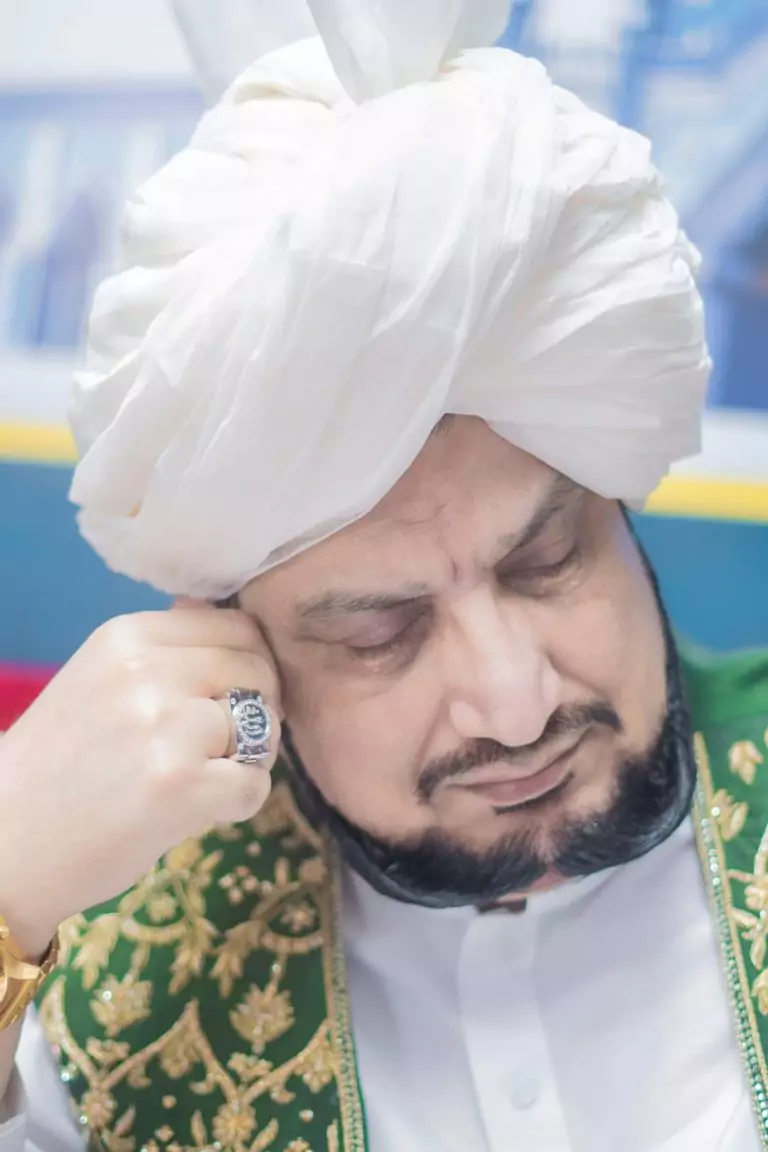
Sultan-ul-Ashiqeen Quote:
Not politics but spiritual training is needed for success in this world and hereafter.
If we ponder over this slogan of Tehreek Dawat-e-Faqr, it becomes clear that the only solution to get out of the decline and decay that the Muslim umma is suffering today is hidden in this slogan. Instead of political power, agenda or political and negative thinking, if we focus our attention on morality, spiritual development and religion, then outward and inward developments which are frozen due to immorality, laziness, worldliness and showmanship can undoubtedly be restored. The example of our society is like that of Bani Israel who involved themselves in moral disorders and political tactics, instead of regaining their lost dignity. As a result, they disobeyed Allah and Allah’s punishment descended upon them. Abu Yahya describes this story in his book “When Life Begins”:
- Allah sent Jeremiah as a Prophet and revealed to him to reform his people. Take them out of politics and bring them to guidance.
Once true worship of Allah is established, they will prevail in politics as well. But when Jeremiah spread this message, everyone
opposed him. (When Life Begins)The second important point made in this slogan is that Muslims must turn to spiritual training to regain their lost dignity. Affiliation with the Saints is essential for spiritual training. If we look at the chapters of Muslims’ golden past, we see that spiritual training is included in the background of their development. The Holy Prophet trained his Companions spiritually such that they spread Islam in every corner of the world. The Companions, the Tābi‘ūn, Tābiʿ al-Tābʿīn and then the Saints carried out the duty of inward purification and reformation of mankind after him.
Invitation towards Divine Gnosis
This process of inward purification continues today like it did during his lifetime. This process has been and continues to be passed down from heart to heart through the Holy Prophet’s chosen successors. Sultan-ul- Ashiqeen is performing this duty in the present era. Seekers of Allah are invited towards Divine gnosis for inward reformation and spiritual training through pledging allegiance to Sultan-ul-Ashiqeen.
Questions
Answer: His Companions, Tābi‘ūn and Tabi al-Tabin the Saints and Sufis performed the duty of guiding people after him. Some important points are:
1. The Rashidun Caliphate
2. Umayyad and Abbasid Dynasty
3. Ottoman Empire
4. Rule over the Subcontinent
Answer: Some important Islamic Saints in history are:
1. Shaikh Abdul Qadir Jilani.
2. Data Ganj Bakhsh.
3. Khawaja Moinuddin Chishti.
4. Bahauddin Zakariya Multani.
5. Fariduddin Ganjshakar.
6. Nizamuddin Auliya.
7. Sultan Bahoo.
8. Shah Waliullah.
Answer: During the early period of Muslim rule in India, there were great Sufi Saints who made a difference in religious, spiritual and social life. Usually people think that Islam spread because of the swords of conquerors and kings. It is evident from the lives of contemporary Sufi Saints of these conquerors and kings that the Sufi Saints first made their own hearts a palace of divine light and then purified people’s lives from material impurities and comforts. They trained people outwardly and inwardly, saved broken hearts by restoring them, set them on the path of goodness, taught them sincerity and love and dedicated them to the service of creation. As a result, everyone including Royal and common, nobles and elders, Muslims and non-Muslims all respected them and the true spirit of Islam reached everyone.

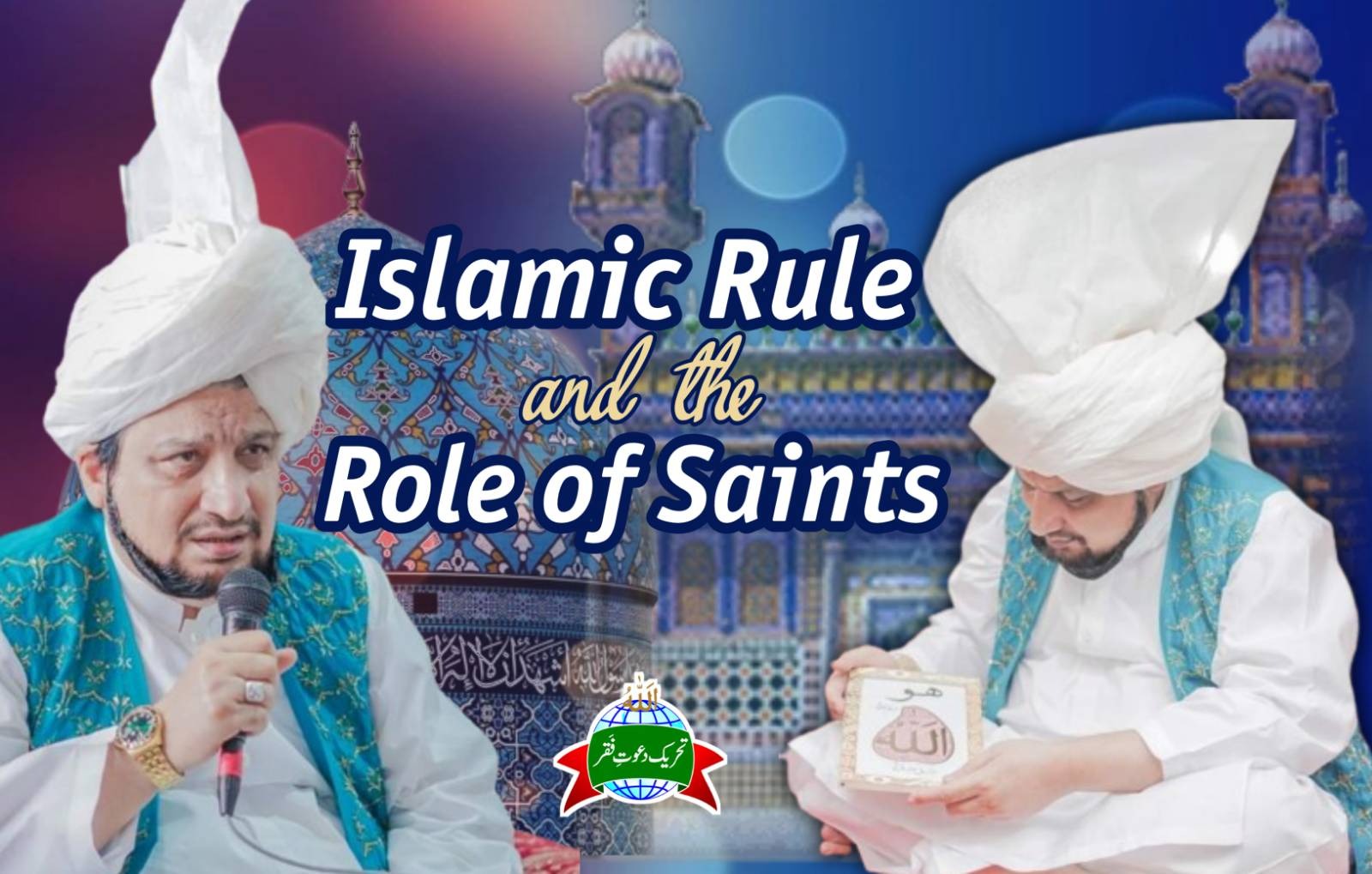
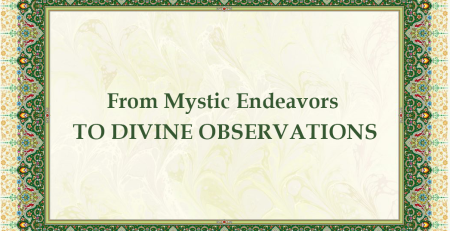



Leave a Reply